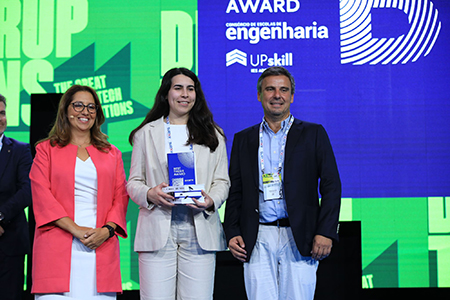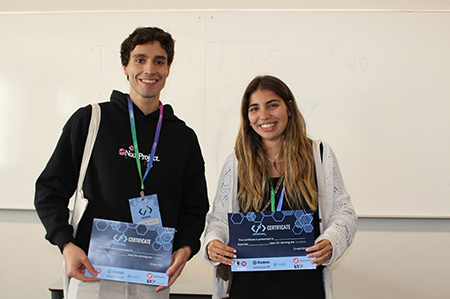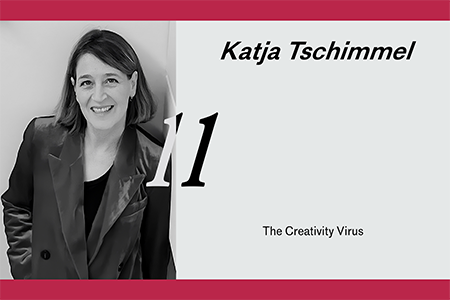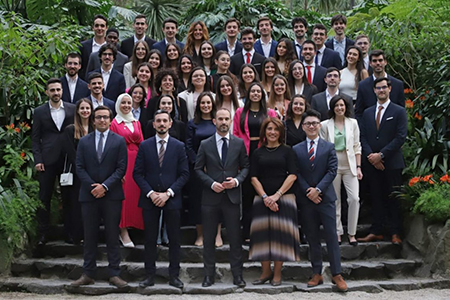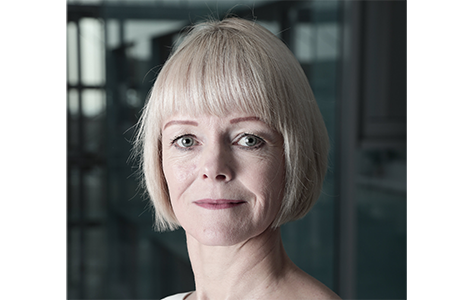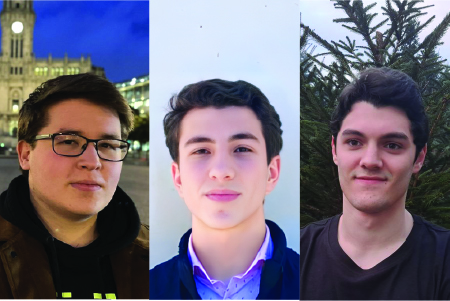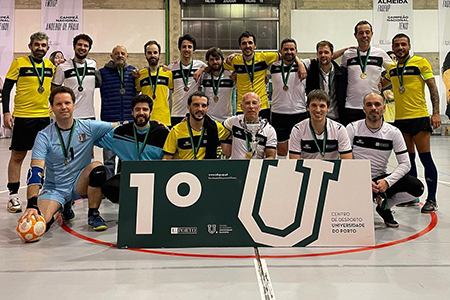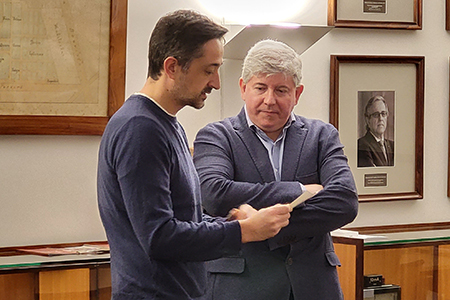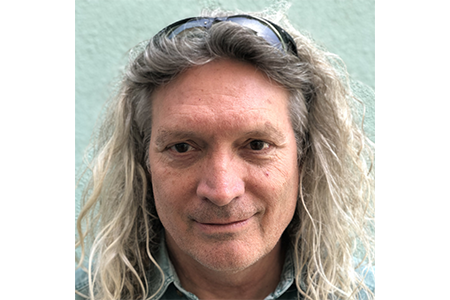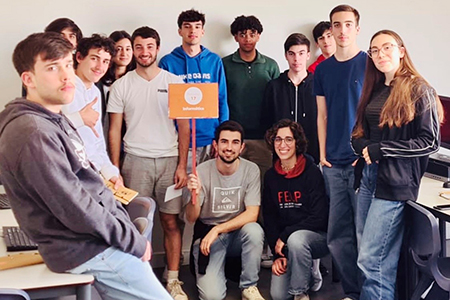The 2nd edition of the Huawei Scholarship Programme awarded once again 50 students with €5000 from several Portuguese universities, 14 of which belong to the University of Porto.
Among these 14 winners we find Ana Beatriz Aguiar, João Gil Mesquita, Maria Beatriz Russo and Pedro Castro Correia, from the Master in Informatics and Computer Engineering (M.EIC) and Luís Filipe Gomes and Cláudio Prata Gomes from the PhD in Informatics (MAP-i), a joint program of the Universities of Minho, Aveiro and Porto (FEUP (DEI) and FCUP (DCC)).
After going through the 3 application phases (application form, interview and 2-minute video), our students proved to be deserving of this scholarship whose recipients are students who stand out not only for their academic path but also, and with great weight, in social initiatives (philanthropy and/or volunteering), activities related to entrepreneurship, associations and student groups, involvement in sports activities and professional experience (full or part-time).
Ana Beatriz Aguiar believes that her involvement in extracurricular activities was highly valued as it demonstrated proactivity and ambition for personal development. “Being specific, I think it was the fact that I was a member of a junior company, a member of the board of the informatics student group and had an internship, which stood out the most on my CV. Involvement in sports activities and volunteering was mentioned in the video of stage 3 and will also have had its weight,” tells us the student who aims to use the scholarship support to get her thesis done with a (technologically acclaimed) company abroad. “I believe that you learn a lot by working with professionals from different countries and I intend to absorb knowledge from all possible sources”. Uncertain about which area will pursue in the future, but ambitious to develop herself to the maximum in order to have a digital impact, whether in Artificial Intelligence, Cybersecurity or Software.
João Gil Mesquita’s ambition is to contribute in the future to the evolution within STEM through scientific research and working at the forefront of an expanding area, such as virtual reality or neuroscience. As for the scholarship he already clearly knows the destination: a semester of mobility at Hong Kong University of Science and Technology. “One of the main reasons for choosing this destination was the prestige of the university and the offer of courses that aroused my interest. Another decisive factor was the desire to get to know a completely different culture that is sometimes isolated from ours. Additionally, I intend to use part of the scholarship to support some personal projects in the area of neuroscience, in order to obtain some practical knowledge to complement the online courses I have previously done” tells us João, who believes that there were several factors that distinguished his candidacy: extracurricular activities, work experience in 2 different companies (Smartex.ai and Critical Software) and the creation of his own virtual reality company in partnership with his brother, VRPortal, the first virtual reality company in Portugal.
Maria Beatriz Russo was eager to apply for Huawei’s programme since the 1st edition and grabbed the opportunity as soon as she heard about the opening of the applications for a new edition. When asked about the impact of the scholarship in her path, Beatriz does not hesitate to tell us that she will use the scholarship money to carry out the Erasmus+ programme in Slovenia as she believes that it will be an extremely enriching experience on a cultural, personal and professional level, and that she will extend her contact network with all the associated advantages. The student, with a very full curriculum in several areas, believes that belonging to the direction of NIAEFEUP as events co-coordinator, being senior developer and team leader at JuniFEUP, having been involved as a volunteer in the reconstruction of houses in Just a Change and having done an internship in Machine Learning at NilgAI, motivated her to overcome herself inspired by all the people she had met. She believes that with work, commitment, organisation and, no less important, a balance between work and rest, everything is possible.
She wants to finish her Masters in Informatics and Computing Engineering and then work in something where she feels she is really making a difference as she believes that technology is capable of solving several challenges, many of them social and environmental. She ends by saying “as a woman in a field where the male presence is so strong, I would like, with my path, to inspire other women and encourage them to enter this technological world, because after knowing that, according to a study made by McKenzie, the EU GDP would increase up to 600 billion euros if twice as many women entered this field, I believe that we are capable of much more than people think!”.
Pedro Castro Correia applied in the first edition of the programme and, not having been selected, decided to apply again. Pedro tells us about the impact that the scholarship will have in the short and medium term:
“The scholarship will undoubtedly be a great asset. For now, I will buy a new laptop which will increase my productivity in my work and projects, since mine is substantially old. I also consider using it to participate in summer schools, workshops or conferences that may interest me and that may be beneficial to my learning and future, namely in the area of natural language processing”. He believes that what was most valued in his application were the participations in external projects, such as the creation of a tool that automates the generation of statistical reports of social networks for a marketing and communication company and the development (pro bono) of a program for the Public Health Unit of Matosinhos, which automates the emission of declarations for the effect of prophylactic isolation, contributing significantly to the efficiency of this unit during the COVID-19 pandemic where, before this help, the delay in the emission was up to one month. His love for teaching also contributed a lot, having been a monitor in a university and a maths tutor in secondary and higher education, as well as his interest in research in the area of language processing, which resulted in him being awarded an initiation scholarship for research in this area.
As for the future, Pedro is still not sure what he will do professionally but, regardless of the path he chooses, he wishes above all to create an impact around him and to feel that he is helping someone. For now he is developing with other colleagues a management tool and automatic generation of schedules, an idea that originally came at the request of the Centro Hospitalar do Médio Ave, in the context of a curricular unit, and that is now being worked on for other sectors.
Luís Filipe Gomes believes that the value of his application depended largely on his successful academic career, the professional experience gained from various internships in industry as well as his dedication to sports (football and kickboxing) and participation in musical activities. Luís intends to finish his doctorate (under the guidance of DEI professor Rui Maranhão), publishing his research and disseminating what is best done in Portugal at a technological level and, in the long term, to continue with partnerships with industry and eventually enter the world of entrepreneurship in his area of specialisation. When we ask him about the impact of the scholarship on his career, Luís tells us “A a student at CMU Portugal, I will be able to visit the USA and Carnegie Mellon more often, working on research and attending workshops and conferences. In addition, I will use the resources to buy the necessary material for my studies, which will enhance my learning experience and help me achieve my academic goals”.
Cláudio Prata Gomes considers himself lucky since he applied in the last possible week when he heard about this scholarship programme through a friend. Cláudio believes that his involvement in CMU Portugal was the flagship of his CV, since it is a challenging and enriching program that confers double degree in PhD, one by the University of Porto, and the other by Carnegie Mellon University. For the successful application also contributed, in his opinion, the strong competence in entrepreneurship and some professional experience in internships and junior companies. When asked about the impact of the scholarship, Cláudio tells us that this amount will allow him to purchase equipment and participate in more scientific events such as conferences and workshops, thus keeping up to date in a constantly evolving area.
“I have the ambition at the end of my current stage with CMU Portugal, to establish a company, even if it is after a period in industry acquiring professional experience. My research in academia involves the use of quantum computers and also algorithms to solve large-scale optimization problems, focused on the complex reality of industry. I would be very happy to use my interests in research to respond to real needs of the industry”, concludes the student who is being supervised by the DEI professor, João Paulo Fernandes.
Diogo Madeira da Silva, Director and Head of Public Affairs, Communications and CSR at Huawei in Portugal, says that Huawei has a history of investment in the area of education that speaks for itself and refers specifically to the Seeds for the Future programme, which has enabled portuguese engineering students to get to know Huawei and learn from its engineers, the ICT Academy programme, under the scope of which they have been signing cooperation and knowledge transfer protocols with portuguese universities, SmartBus, an initiative aimed at younger children and, obviously, this Huawei Scholarship Programme, in which investment has already reached €500,000, with the attribution of 100 scholarships to portuguese students. In reference to this, Diogo Madeira da Silva transmitted that there is a great will to contribute to the reduction of gender inequalities in the ICT industry, therefore half of these scholarships were awarded to female students.
Luísa Ribeiro Lopes, Chairwoman of .PT, partner of the initiative, agrees with this vision and recently stated to Forbes Portugal that “more than a human rights issue – which would be enough on its own – this positive discrimination in the attribution of half of the scholarships to women is an issue of economic, social and competitive valorisation for the country”.
